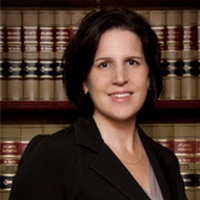 Burlington Divorce & Family Law Lawyers, New Jersey
Burlington Divorce & Family Law Lawyers, New Jersey
Sponsored Law Firm
-
 x
x

Click For More Info:
-
Hulse & Wynter, LLC
1624 Jacksonville Road Suite 1 Burlington, NJ 08016» view mapDivorce & Family Law 40 Years of Experience
The attorneys at Hulse & Wynter offer reliable legal solutions to individuals and businesses in the areas of real estate, family, probate, bankruptcy and business law.
800-611-9690
Lawyers
1-1 of 1 matches
Criminal, Divorce & Family Law, Accident & Injury, Immigration



 Gracy Wynter Burlington, NJ
Gracy Wynter Burlington, NJ AboutHulse & Wynter, LLC
AboutHulse & Wynter, LLC Practice AreasExpertise
Practice AreasExpertise